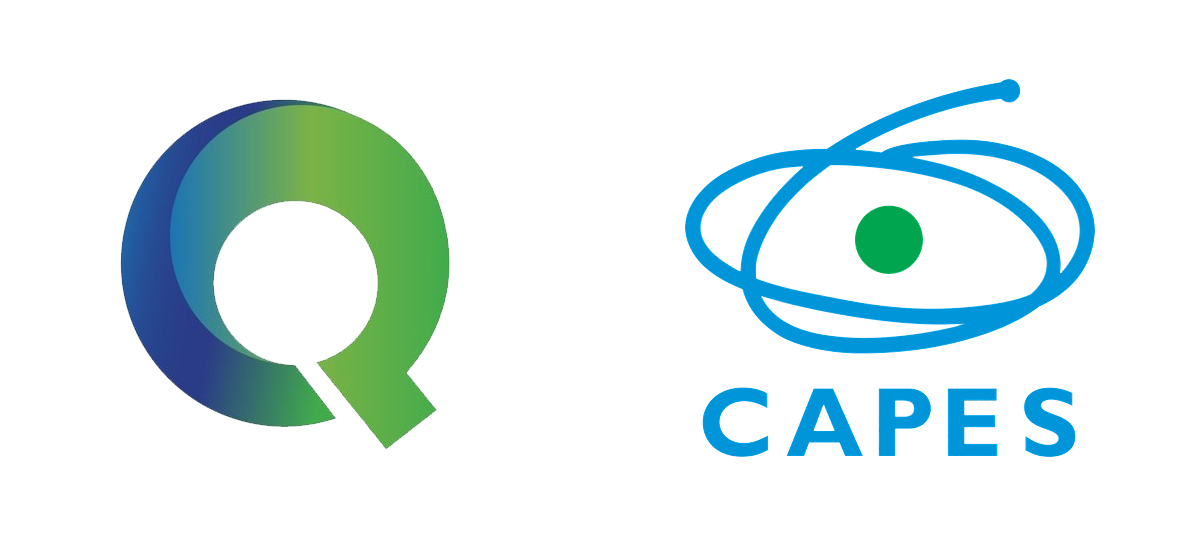Cognitive decline preventive practices and associated factors carried out by elderly people
DOI:
https://doi.org/10.5935/1415-2762.20190114Keywords:
Cognition, Aged, Disease Prevention, Geriatric NursingAbstract
Objective: to analyze the prevalence of cognitive decline (CD) preventive practices among the elderly population and the associated socio-demographic and health factors. Methodology: a cross-sectional, analytical study, conducted with 557 older people assisted at family health units in the city of Tangará da Serra-MT. Data were obtained through interviews, using an instrument containing sociodemographic characteristics, health conditions and CD preventive practices performed by the older people and applying the abbreviated geriatric depression scale and the Barthel index. Bivariate analysis was performed between the independent variables and CD preventive practices to verify association (p <0.05) using Pearson's x2 test. Variables with an association with p <0.20 were selected for
entry into the Poisson multiple regression model by the stepwise forward method. Results: the prevalence of CD preventive practices was 55.1%. An association was found between CD preventive practices and the variables education (p<0.001), occupational status (p <0.001), functional capacity (p = 0.017), gender (p <0.001) and self-rated health (p = 0.028). Conclusion: preventive practices of
CD were performed in most participants and were not previously documented in other studies. Female, functionally independent, highly educated elderly women
who are working and self-rated their health as regular performed more CD preventive practices. These results are important since they show the characteristics of this population that should be taken into consideration when planning actions to promote cognitive health.
Downloads
References
Petersen RC, Lopez O, Armstrong MJ, Getchius TSD, Ganguli M, Gloss D, et al. Practice guideline update summary: mild cognitive impairment. Report of the Guideline Development, Dissemination, and Implementation Subcommittee of the American Academy of Neurology. Neurology. 2018[citado em 2019 jan. 13];90:126-35. Disponivel em: https://n.neurology.org/content/neurology/90/3/126.full.pdf
Petersen RC. Mild Cognitive Impairment. Continuum (Minneap Minn). 2016, 22(2 Dementia): 404-18[citado em 2018 nov. 13]. Disponivel em: https://www.ncbi.nlm.nih.gov/pmc/articles/PMC5390929/pdf/20160400.0-0007.pdf
World Health Organization (WHO). Risk reduction of cognitive decline and dementia: WHO guidelines. Geneva: WHO; 2019[citado em 2018 nov. 13]. Disponivel em: https://apps.who.int/iris/bitstream/handle/10665/312180/9789241550543-eng.pdf?ua=1
Organizacion Mundial de la Salud (OMS). Demencia: una prioridad de salud publica. Washington: Organizacion Panamericana de la Salud; 2013[citado em 2018 nov. 13]. Disponivel em: http://apps.who.int/iris/bitstream/10665/98377/1/9789275318256_spa.pdf
Brucki SMD. Epidemiology of mild cognitive impairment in Brazil. Dement Neuropsychol. 2013[citado em 2018 nov. 13];7(4):363-6. Disponivel em: https://www.ncbi.nlm.nih.gov/pmc/articles/PMC5619496/pdf/dn-07-04-0363.pdf
Chaimowicz F, Burdorf A. Reliability of nationwide prevalence estimates of dementia: a critical appraisal based on brazilian surveys. PLoS One. 2015[citado em 2018 nov. 13];10(7):1-15. Disponivel em: https://journals.plos.org/plosone/article?id=10.1371/journal.pone.0131979
Alzheimer’s Disease International (ADI). World Alzheimer Report 2014. Dementia and Risk Reduction - an analysis of protective and modifiable factors. London: ADI; 2014[citado em 2018 nov. 13]. Disponivel em: http://www.alz.co.uk/research/WorldAlzheimerReport2014.pdf
Kivipelto M, Mangialasche F, Ngandu T. Lifestyle interventions to prevent cognitive impairment, dementia and Alzheimer disease. Nat Rev Neurol. 2018[citado em 2015 set. 10]; 14(11):653-66. Disponivel em: https://www.nature.com/articles/s41582-018-0070-3
Ngandu T, Lehtisalo J, Solomon A, Levalahti E, Ahtiluoto S, Antikainen R, et al. A 2 year multidomain intervention of diet, exercise, cognitive training, and vascular risk monitoring versus control to prevent cognitive decline in at-risk elderly people (FINGER): a randomised controlled trial. Lancet. 2015[citado em 2015 set. 10];385(9984):2255-63. Disponivel em: https://www.thelancet.com/journals/lancet/article/PIIS0140-6736(15)60461-5/fulltext
Dias RG, Streit IA, Sandreschi PF, Benedetti TRB, Mazo GZ. Diferencas nos aspectos cognitivos entre idosos praticantes e nao praticantes de exercício fisico. J Bras Psiquiatr. 2014[citado em 2015 set. 10];63(4):326-31. Disponivel em: http://www.scielo.br/pdf/jbpsiq/v63n4/0047-2085-jbpsiq-63-4-0326.pdf
Lam LCW, Cheng ST. Maintaining long-term adherence to lifestyle interventions for cognitive health in late life. Int Psychogeriatr. 2013[citado em 2018 set. 16];25(2):171-3. Disponivel em: https://www.cambridge.org/core/services/aop-cambridgecore/content/view/F457B73F55F2F34D154B4948B54945CC/S1041610212001603a.pdf/maintaining_longterm_adherence_to_lifestyle_interventions _for_cognitive_health_in_late_life.pdf
World Health Organization (WHO). Advocacy, communication and social mobilization for TB control: a guide to developing knowledge, attitude and practice survey. Geneva: WHO; 2008[citado em 2018 set. 16]. Disponivel em: http://whqlibdoc.who.int/publications/2008/9789241596176_eng.pdf
Paradela EMP, Lourenco RA, Veras RP. Validacao da escala de depressão geriatrica em um ambulatorio geral. Rev Saude Publica. 2005[citado em 2018 dez. 19];39(6):918-23. Disponivel em: http://www.scielo.br/pdf/rsp/v39n6/26986.pdf
Araujo F, Ribeiro JLP, Oliveira A, Pinto C. Validacao do Indice de Barthel numa amostra de idosos nao institucionalizados. Rev Port Sau Pub. 2007[citado em 2018 dez. 19];25(2):59-66. Disponivel em: https://docplayer.com.br/20996746-Validacao-do-indice-de-barthel-numa-amostra-deidosos-nao-institucionalizados.html
Rebok GW, Ball K, Guey LT, Jones RN, Kim H, King JW, et al. Ten-Year effects of the advanced cognitive training for independent and vital elderly cognitive training trial on cognition and everyday functioning in older adults. J Am Geriatr Soc. 2014[citado em 2018 dez. 19];65(1):16-24. Disponivel em: https://dx.doi.org/10.1111%2Fjgs.12607
Turunen M, Hokkanen L, Backman L, Stigsdotter-Neely A, Hanninen T, Paajanen T, et al. Computer-based cognitive training for older adults: determinants of adherence. PLoS One. 2019[citado em 2018 set. 16];14(7):e0219541. Disponivel em https://journals.plos.org/plosone/article/file?id=10.1371/journal.pone.0219541&type=printable
Liang JH, Xu Y, Lin L, Jia RX, Zhang HB, Hang L. Comparison of multiple interventions for older adults with Alzheimer disease or mild cognitive impairment. A PRISMA-compliant network meta-analysis. Medicine (Baltimore). 2018[citado em 2018 set. 16];97(20):e10744. Disponivel em: https://doi.org/10.1097/MD.0000000000010744
Arpino B, Guma J, Julia A. Early-life conditions and health at older ages: the mediating role of educational attainment, family and employment trajectories. PLoS One. 2018[citado em 2018 set. 16];13(4):e0195320. Disponivel em: https://journals.plos.org/plosone/article/file?id=10.1371/journal.pone.0195320&type=printable
Zaitune MPA, Barros MBA, Cesar CLG, Carandina L, Goldbaum M, Alves MCGP. Fatores associados a pratica de atividade fisica global e de lazer em idosos: inquerito de saude no Estado de Sao Paulo (ISA-SP), Brasil. Cad Saude Publica. 2010[citado em 2018 set. 16];26(8):1606-18. Disponivel em: http://www.scielo.br/pdf/csp/v26n8/14.pdf
Cockell FF. Idosos aposentados no mercado de trabalho informal: trajetorias ocupacionais na construcao civil. Psicol Soc. 2014[citado em 2018 set. 16];26(2):461-71. Disponivel em: http://www.scielo.br/pdf/psoc/v26n2/a22v26n2.pdf
Borim FSA, Barros MBA, Neri AL. Autoavaliacao da saude em idosos: pesquisa de base populacional no Municipio de Campinas, Sao Paulo, Brasil. Cad Saude Publica. 2012[citado em 2018 set. 16];28(4):769-80. Disponivel em: http://www.scielo.br/pdf/csp/v28n4/16.pdf
Instituto Brasileiro de Geografia e Estatistica (IBGE). Pesquisa Nacional de Saude 2013: percepcao do estado de saude, estilos de vida e doenças cronicas. Rio de Janeiro: IBGE; 2014[citado em 2016 jan. 12]. Disponivel em: ftp://ftp.ibge.gov.br/PNS/2013/pns2013.pdf
Thompson AE, Anisimowicz Y, Miedema B, Hogg W, Wodchis WP, Aubrey-Bassler K. The influence of gender and other patient characteristics on health care-seeking behaviour: a QUALICOPC study. BMC Farm Pract. 2016[citado em 2018 set. 16];17:38. Disponivel em: https://dx.doi.org/10.1186%2Fs12875-016-0440-0
Published
Issue
Section
License
Copyright (c) 2020 Reme: Revista Mineira de Enfermagem

This work is licensed under a Creative Commons Attribution 4.0 International License.





































